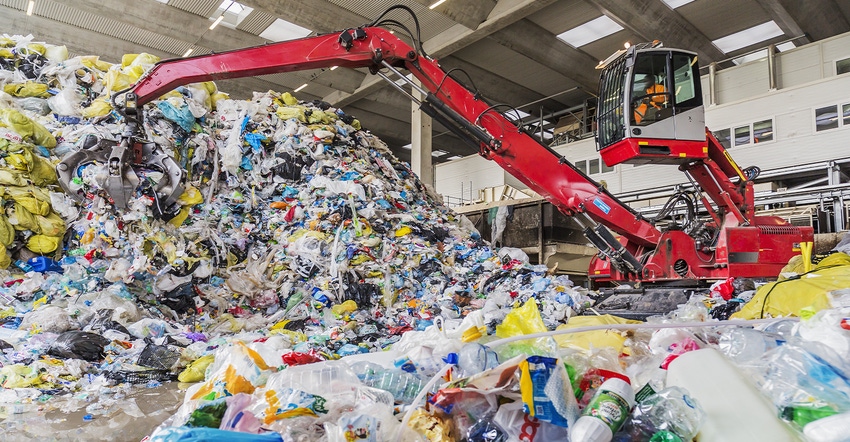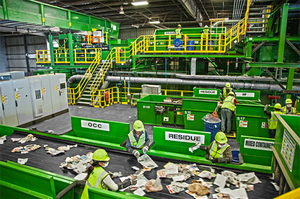
The topic of advanced recycling continues to draw interest as the plastics crisis remains at the forefront of discussions among scientists, governments and media.
A new report from Closed Loop Partners titled, "Transitioning to a Circular System for Plastics: Assessing Molecular Recycling Technologies in the United States and Canada" dives into the complexities and advantages of chemical recycling.
“To close the loop on plastic waste we will need to deploy multiple strategies and harness innovation in reduction and reuse alongside a diversity of recycling technologies," commented Kate Daly, managing director, Center for the Circular Economy at Closed Loop Partners, in a statement. "It’s imperative that we recover all kinds of plastic, including and beyond single-use plastic packaging. Two-thirds of plastics used in the U.S. today are for applications like wind turbines, textiles, car parts and healthcare devices––which are viable feedstock for different advanced recycling technologies."
Advanced recycling incorporates the use of technological innovations along with solvents, heat and enzymes to break down waste plastics to a molecular state. Although more energy is utilized during the process, an array of plastics that cannot be broken down via mechanical recycling now can accepted back into manufacturing supply chains without the loss of quality.
As plastics production is set to triple by 2050, solutions are needed for harder-to-recycle types of plastics. Yet, there is a "scarcity of comparative analysis among the different technologies and a lack of systems-level analysis of their potential financial, environmental, and human health opportunities and risks," according to the New York-based investment firm. The end goal of the report is to supplement data-backed decisions in order to scale molecular plastics recycling as a viable solution.
APK AG, PureCycle Technologies, Brightmark, Carbios and others provided the data that was used throughout the 170-page document.
The report is broken down into three key sections. Educate takes a glance at the current linear system in the United States and Canada and the need to establish an upstream supply chain. Collaborate explains the stakeholder environment and the role of each entity. Invest examines the "technological viability, financial viability, environmental and human health impact measurement, and integration into local market."
The document digs into ten key elements, including the need to look past single-use plastic packaging; the need to solve for the myriad of plastics; carbon emissions; environmental and human health risks related to virgin plastic production; and more.
"Molecular recycling technologies can complement existing mechanical recycling infrastructure by processing plastic waste that mechanical recyclers would otherwise have to pay to discard; integrating a mix of all three molecular recycling technologies into the broader recycling system in the United States and Canada could double the amount of plastic packaging recycled, compared to 2019 recycling rates, and generate up to $970 million dollars (USD) annually for the existing recycling system," according to Closed Loop Partners.
In order to achieve a circular plastics system, there must be:
1. Investment in technology development and integration into the existing recycling system, for technologies that drive toward circular outcomes and support decarbonizing our plastics economy;
2. Collaboration between incumbents and innovators across the plastics value chain, from production to recovery and recycling; and Conclusion Conclusion; and
3. Policies inclusive of molecular recycling, to set a new, holistic regulatory and market environment.
Closed Loop Partners concluded that, "given the scale of global commitments on plastics and climate made by consumer brands and governments, molecular recycling can play an important role, alongside other plastic waste mitigation strategies, in a larger trend in which virgin plastic production is de-emphasized in the coming decades."
About the Author(s)
You May Also Like




